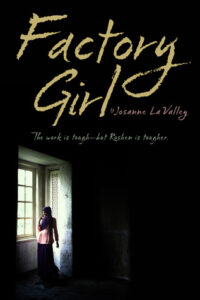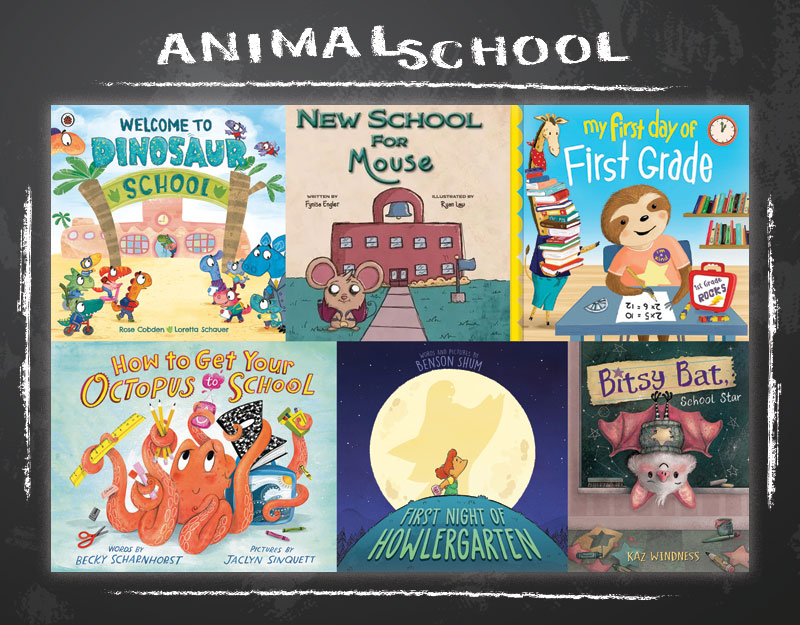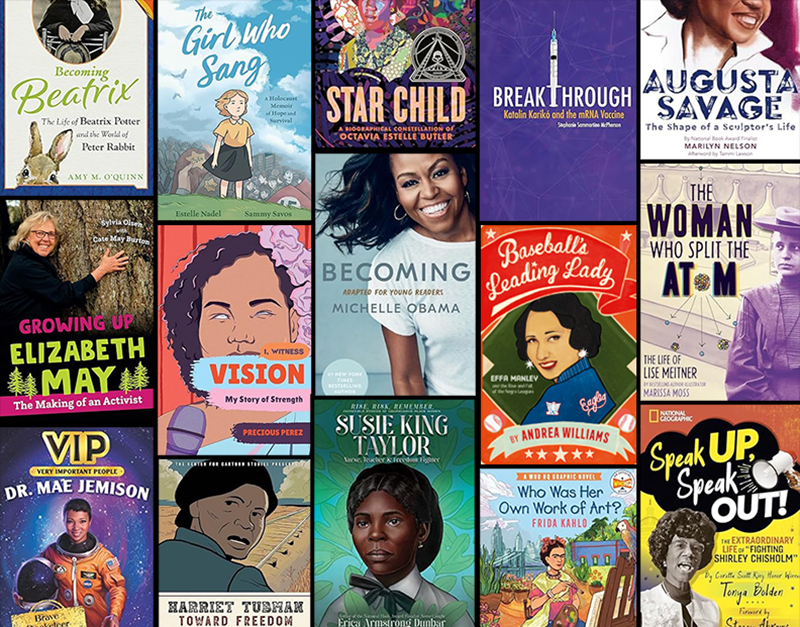Book Review: Factory Girl by Josanne La Valley
Publisher’s description
 In order to save her family’s farm, Roshen, sixteen, must leave her rural home to work in a factory in the south of China. There she finds arduous and degrading conditions and contempt for her minority (Uyghur) background. Sustained by her bond with other Uyghur girls, Roshen is resolved to endure all to help her family and ultimately her people. A workplace survival story, this gritty, poignant account focuses on a courageous teen and illuminates the value—and cost—of freedom.
In order to save her family’s farm, Roshen, sixteen, must leave her rural home to work in a factory in the south of China. There she finds arduous and degrading conditions and contempt for her minority (Uyghur) background. Sustained by her bond with other Uyghur girls, Roshen is resolved to endure all to help her family and ultimately her people. A workplace survival story, this gritty, poignant account focuses on a courageous teen and illuminates the value—and cost—of freedom.
Amanda’s thoughts
Sixteen-year-old Roshen intends to continue her schooling to become a teacher. Her plans are changed for her when she is sent away to work in a factory in southern China. Roshen is devastated to have to leave her Muslim Uyghur family, who live near the Taklamakan Desert in northwest China. In addition to leaving behind her plans for school and her family, she leaves Ahmat, the boy she shares a special connection with and who it seems likely she will soon be engaged to. Roshen’s family isn’t told exactly where she will be taken, only that she will be gone for a year and is not allowed any devices or contact with her family. She and Ahmat set up a secret email address for her and devise a code, hoping she will be able to find internet stations and at least get a little information back to him. They expect that Roshen will be mistreated at the factory and discuss how she shouldn’t fight back. There may be spies and traitors among the girls, too.
ADVERTISEMENT
ADVERTISEMENT
Roshen and eleven other Uyghur girls are taken on the long journey to their factory. They’re led by Ushi, who is not only mean, but unfortunately also one of their bosses. They arrive to learn they will cut, sew, and finish work wear. It’s grueling work that’s hard on their bodies. The girls work very long hours, are hit with a rod if appearing unsatisfactory, are forced to speak Mandarin only (and penalized if they speak Uyghur), aren’t allowed to wear their headscarves, and are often served meals with pork in them. They’re served tea with a drug in it to keep them awake so they can work longer hours. Many of the Chinese girls use clothespins to keep their eyes open. Additionally, the girls don’t even make money for many months as they are forced to pay for their trip from home to the factory, their meals, their uniforms, and the many unfair penalties they are assessed.
The twelve Uyghur girls are isolated from the rest of the workers and though they don’t all get along, and Roshen can’t stop wondering is someone is a spy, they bond together to help and protect one another. Roshen becomes a leader and learns how to work the system and avoid punishment as best she can. Roshen’s closest friend, Mikray, is defiant and determined to escape. Young Zuwida is in very poor health and only getting worse. Proud and haughty Hawa is selected to help the bosses by looking beautiful and being available to help placate clients. Eventually, Roshen, who speaks English in addition to Mandarin and Uyghur, is forced to go out with the boss and some clients. She is horrified by what is expected of her and receives some very unexpected (and heartbreaking) help. After returning to the factory, she is determined to allow herself to become gaunt, unwashed, and unappealing to avoid further assignments like this. Her decision has unintended consequences that leave her feeling incredibly guilty but also move her to further action.
Throughout all of her time at the factory, Roshen tries to remember the power of words. She clings to the songs and poems she has been taught and formulates her own. Her experience as a factory girl changes her forever. Roshen knows now that she will write, that she will tell the story of the factory girls. Generally well-written, the story’s one real downfall is the lack of development of many of the Uyghur girls, who don’t feel necessary beyond showing they are part of the block of girls isolated and most abused. At the same time, it’s the development of the girls who do carry pieces of the story, and their friendships and support, that make this story especially interesting and powerful. My ARC didn’t include the afterword, which apparently provides more context for the story and how La Valley came to tell it. This harrowing story of exploitation, abuse, and forced labor is a compelling (and horrifying) look at a story (and a setting) not often seen in YA.
Review copy courtesy of the publisher
ISBN-13: 9780544699472
Publisher: Houghton Mifflin Harcourt
Publication date: 01/10/2017
Filed under: #SJYALit, Book Reviews
About Amanda MacGregor
Amanda MacGregor works in an elementary library, loves dogs, and can be found on Twitter @CiteSomething.
ADVERTISEMENT
ADVERTISEMENT
SLJ Blog Network
The Moral Dilemma of THE MONSTER AT THE END OF THIS BOOK
Cover Reveal and Q&A: The One and Only Googoosh with Azadeh Westergaard
K is in Trouble | Review
Parsing Religion in Public Schools
ADVERTISEMENT







